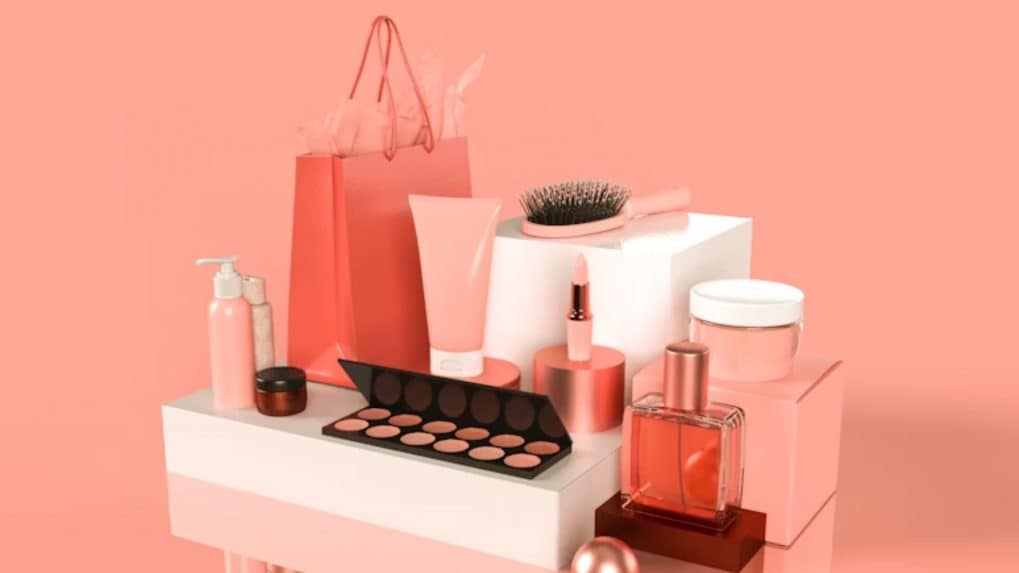Myntra to Zepto, platforms cash in on cosmetics boom; K-beauty soars 75% on Amazon
Zepto co-founder Aadit Palicha last week announced the 10-minute delivery for luxury cosmetic brands-- Estée Lauder's M.A.C., The Ordinary and Clinique--on the platform.
ADVERTISEMENT
From discounted offerings to previously elusive luxury and global brands, e-commerce and quick commerce platforms are witnessing a multifold surge in beauty and skincare product sales amid soaring demand.
In fact, capitalizing on this trend, Zepto co-founder Aadit Palicha last week announced the 10-minute delivery for luxury cosmetic brands-- Estée Lauder's M.A.C., The Ordinary and Clinique--on the platform.
After observing a surge in demand for existing beauty brands like Maybelline, Lakmé, and Faces Canada, Mamaearth, Renee, Swiss Beauty, and SUGAR Cosmetics, Zepto decided to expand its portfolio by including luxury brands as well, to offer users a wider range of options, said Devendra Meel, Chief Business Officer at Zepto.
According to a report by Bengaluru-based consultancy firm Redseer, India's beauty industry is expected to reach $34 billion by 2028, driven by rising disposable incomes, increased consumer aspirations, and the influence of social media and e-commerce.
Quick-commerce’s ad fee toll: Are Zepto, Blinkit, Instamart squeezing out small D2C brands?
Highlighting changing consumer behaviour, Amazon Beauty, Director Siddharth Bhagat told Storyboard18 about a strong shift towards tech-enabled, trend-led and personalised experiences for the cosmetics and skincare products. He said that faster deliveries, influencer-driven discovery, and the rise of D2C and international brands are further fueling the momentum.
"Amazon has witnessed a 12x growth in cosmetics due to the recent success of newly launched brands in 2025," Bhagat added.
Nykaa, the pioneer in building a beauty-centric digital commerce platform, said its beauty business has grown 25 percent on a year-on-year basis, recording a revenue of Rs 7,251 crore for fiscal year 2025. Nykaa's beauty vertical includes e-commerce, physical retail, its house of brands, as well as an eB2B business.
Nykaa's closest competitor, Myntra, has also ramped up its beauty segment on the platform to capitalise on the demand.
Nykaa’s beauty vertical registers robust growth in Q4 FY25
Deepak Joshi, Senior Director - Category Management, Beauty and Personal Care, Myntra said the platform's dedicated 'Beauty' segment has outpaced the online beauty market by two-fold, registering more than 50 percent consistent year-on-year increase in monthly active users. "Currently, Myntra Beauty boasts more than 2,900 brands," Joshi added.
'Tier-2 demand surge'
Industry experts have acknowledged that tier-2 cities have emerged as a crucial market for platforms, driving demand for both affordable and premium cosmetics and skincare products.
Meel from Zepto said that while quick commerce has largely remained metro-centric, traction for beauty products has notably increased in Tier-2 cities as well.
Myntra's Joshi also noted that nearly half of the beauty buyers on the platform come from tier-2 and tier-3 cities. Besides, He also mentioned that Myntra's quick commerce service, M-Now, witnessed a 1.4x spike in demand for beauty products on Mother's Day in 2025.
Notably, Vishal Chaturvedi, Vice President, The Body Shop, Asia South, said that quick commerce has delivered exceptional results for the company, almost doubling its growth compared to last year. "Our specially curated selection of packed gift boxes and mini packs has seen strong sales on the quick commerce platform," Chaturvedi said.
'Rise of K-Beauty'
In the competitive beauty market, digital commerce platforms have expanded their portfolio by adding luxury and premium beauty offerings, particularly Korean beauty (K-beauty) brands.
According to the Amazon spokesperson, the K-Beauty category on the platform has witnessed a 75 percent year-on-year growth.
According to Bhagat, K-beauty products primarily resonates with urban and digital-savvy women, aged between 20 and 35 years. "The urban women have embraced K-beauty products to a larger extent, especially from cities like Bengaluru, Mumbai, Delhi, Hyderabad and Pune".
Moreover, women from tier-2 cities are also exploring the K-beauty products through trial SKUs like sheet masks and minis, he added.
Bucking the trend, Bhagat said Amazon has observed that a rising cohort of male consumers are also experimenting with Korean skincare, particularly around functional solutions like cleansers, serums, and sunscreens.
A range of K-beauty brands have entered into Indian market via digital commerce platforms, such as COSRX, Laneige, and Beauty of Joseon, TIRTIR, Medicube, and Skin1004.
Meanwhile, Myntra said that they have witnessed a 200 percent YoY growth in K-beauty category.
Beyond K-beauty, several international luxury beauty brands are also capturing Indian consumers' attention through digital channels.
Nykaa has a dedicated segment, called Nykaa Luxe, which offers a wide range of cosmetics and skincare products from luxury brands such as Armani beauty, Chanel, L’Oréal Luxe, Eucerin, Dior, Tom Ford, sol de janerio, among others.
The company noted that the average annual spend by its top 10% customers is $395 on premium beauty products.
Following suit, other platforms like Tira and Tata CliQ have also expanded their beauty portfolios.
Myntra's quick commerce venture also offers a selection of international and premium beauty brands, including YSL and Estee Lauder.
A report by global consultancy firm Kearney underscored that the luxury beauty accounts for about 4 percent share of the overall beauty and personal care market. In contrast, developing Asian peers, such as Thailand, Vietnam, and Malaysia, see luxury beauty holding a 20-25 market share.
However, when it comes luxury beauty market, offline stores have outpace online platforms, according to Kearney.
The firm said that 70 percent of luxury beauty sales came from the offline channel in the past year.
"Specialty stores, with beauty-focused multi-brand retailers such as Sephora and Nykaa, contribute to 25 percent of the luxury beauty market, followed by boutiques or standalone brand stores, such as MAC, Forest Essentials, and Dior, with 20 percent of the market," the report added.

